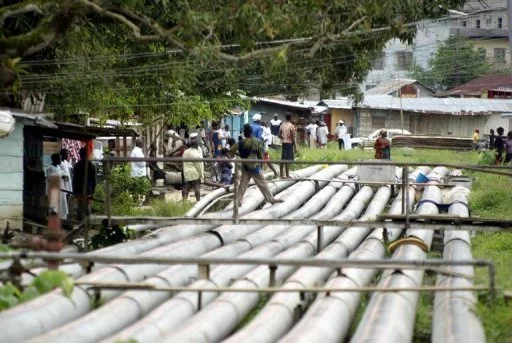
At a period when Nigeria is struggling to meet its revenue target for 2020 national budget, the oil industry which contributes over 70 percent of its revenues lost 22 million barrels in six months or $1.32 billion to crude oil pipeline vandals. That should be a serious source of concern to not just the stakeholders but the states in the Niger Delta where these criminals operate.
Multinational leading upstream petroleum operator Shell Petroleum Development Company loses about 15,000 barrels per day to oil theft and vandalism. This amounts to $900,000 or 275 million naira daily to these acts of sabotage.
Aiteo Eastern Exploration and Production, an indigenous player has had to shut down its operations at the Nembe Creek Trunk Line which is responsible for a sizable chunk of crude oil exports due to vandalized pipelines.
Register for Tekedia Mini-MBA edition 19 (Feb 9 – May 2, 2026): big discounts for early bird.
Tekedia AI in Business Masterclass opens registrations.
Join Tekedia Capital Syndicate and co-invest in great global startups.
Register for Tekedia AI Lab: From Technical Design to Deployment (next edition begins Jan 24 2026).
For every ruptured pipeline, the affected oil company conducts investigations, deploys boats for inspection, pays for containment and other post spillage activities which cause production downturn as operational targets are not met due to this paralysis. The losses also include environmental pollution, soot which affects the health of human and animal habitants of the communities.
Shell reported 17 oil spills in 2017 and 111 in 2018 replacing 1,160 illegal theft points. In seven years it has had to replace 1,300km out of its 4,000km pipeline network. Most cases of oil spillage are as a result of interference as the oil majors are accused of not carrying their host communities along as partners in development, unlike what happens in other climes which makes their youths vandalize pipelines as a means of protest.
The complicit cycle of corruption has made it possible for the vandals to get crude oil once it is pumped by the oil companies for delivery to the local and foreign markets. Using hacksaws, drillers to make holes and bombs, galvanized pipelines buried underneath are connected to waiting vessels which will sell the stolen crude to foreign buyers which include refineries.
This criminal activities are also causing Nigeria a negative impression as investors will be wary of committing fresh investments in an environment where their projects are exposed to daily risks.
Poverty is a contributing factor at the heart of vandalism. Due to neglect of the Niger Delta Region whose mineral wealth has been used to develop other parts of the country to the chagrin of its inhabitants, they have taken to crude oil bunkering not minding the negative effects on their immediate environment as well as their existence as a means of survival as refineries, petrochemical plants and other allied industries to create jobs for its youths, state of the art infrastructure are not in existence.
The Nigerian National Petroleum Development Corporation which operates joint ventures with all the oil companies which operate in the region should do orientation every week on the local TV and radio stations in Ijaw, Urhobo, Itshekiri, Igbo, Ikwerre, Ibibio and other languages spoken by citizens of the Niger Delta states on the dangers of crude oil pipeline vandalization.
Efforts have been made using deep technology to combat this menace. A young Nigerian student Innovator Tayo Sadique from the prestigious Obafemi Awolowo University, Ile-Ife has created a solution Musscomm Spillsat. Spillsat is an oil spill, gas leak and vandalization detection system. It utilizes a balloon satellite to collect aerial data that is processed and used to provide real time analytics to oil and gas companies.
Spillsat should create a mobile and web application for oil and gas operators which will use machine, deep learning and computer vision capabilities in facial recognition for identification and monitoring of pipeline vandals in real time even under dark cover when carrying out their nefarious activities, reporting the actual amount of barrels per day stolen, environmental impact assessment of the oil spillage or gas leak while integrating the blockchain to track the stolen oil from the point of production to domestic and foreign buyers in order to aid their arrests by officers of the Nigerian Navy and Civil Defense Corps.



